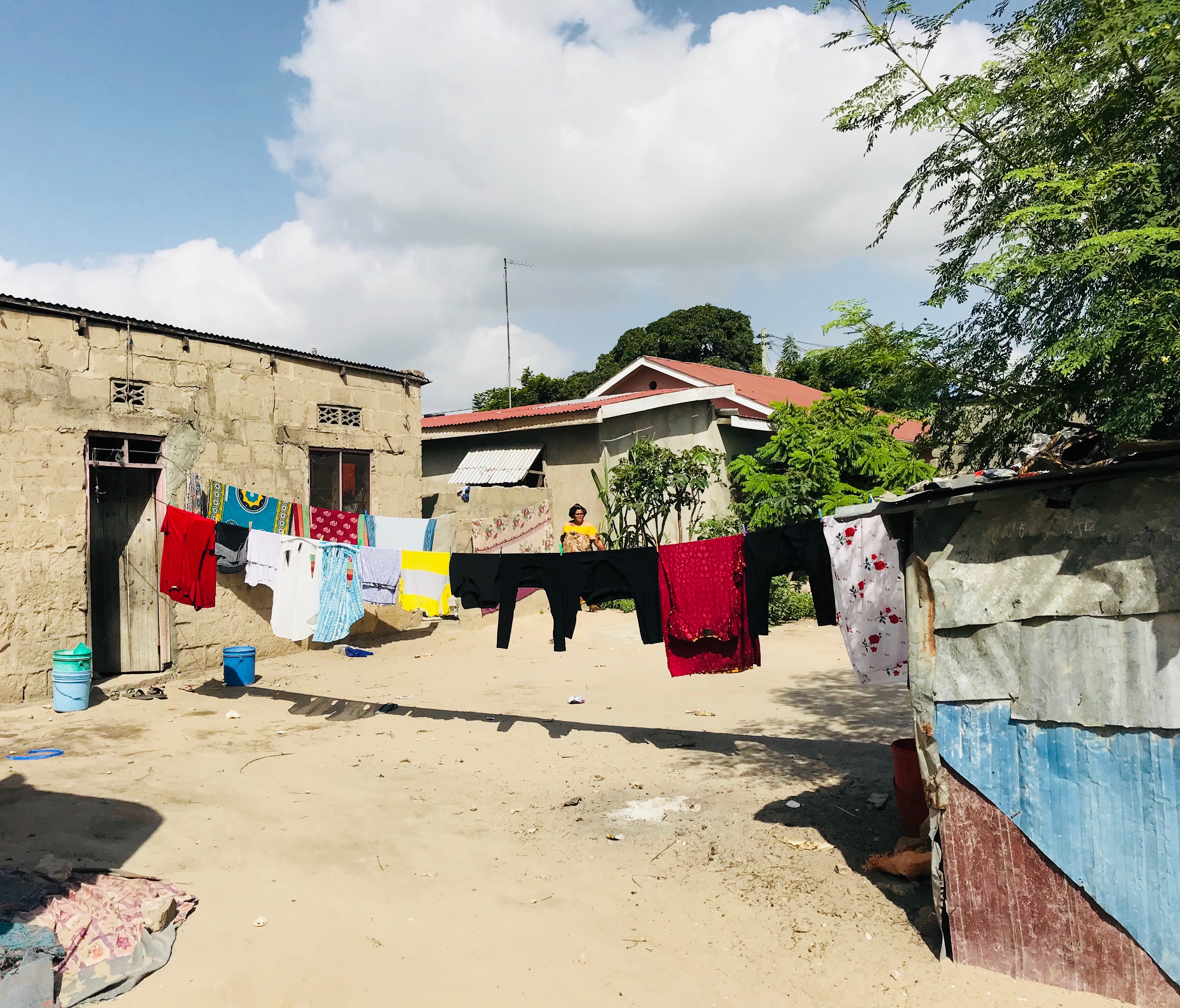After finishing a week of volunteering on the outskirts of Dar Es Salaam, I’m now halfway into the second week of my stay in the city center. There is not much to see here so I’ve had a lot of time to think, plan the next few legs of my trip and read.
Dar es Salaam, meaning “House of Peace” in Arabic, is the capital city of Tanzania. With a population of roughly 5.5 million, it is the largest city in East Africa. The most impressive characteristic of this city is its many contrasts. It’s a city of juxtapositions.
The city is both hectic and calm. Traffic is chaotic, a cloud of dust persistently hangs in the air and there are people everywhere – walking to their destinations, selling food and merchandise or just merely hanging out. Yet there always exists a calmness in the air. There is no hysteria. People don’t yell and scream despite the chaos. Cars don’t honk incessantly despite the major traffic jams.
There is an unusual mix of modern high-rise buildings adjacent to rundown shacks, contrasting the old and rundown with the new. The high-rise may be home to a new shopping mall with modern eateries that offer free 4G LTE wifi while the local shop, equivalent to a bodega, is selling a potpourri of seemingly outdated goods wrapped in dusty packages. There seems to be quite an investment in new facilities but not in rehabbing old ones.
Being a coastal city, Dar Es Salaam is lined with beaches along the coast with remarkable views of the bays leading into the Indian Ocean. Starting from the coastline, the color of the water shifts like the shades of ocean blue on a color wheel. But to see these breathtaking views, you have to look through the lens of dilapidated land, pollution and dying vegetation. It’s stunning but hard to appreciate with what you have to look past to see it.
Perhaps the most palpable incongruity is inaccessibility. I would not call the people in Dar poor. They are hard-working, working class people. But the fruits of their labor do not pay off. Despite the plethora of merchandise, food and other necessities available in this city, there is an inaccessibility that exists to everyday luxuries we enjoy without a second thought. For those who are not well off, to take a taxi is expensive. More recently Uber has emerged, which is more than half the price of a taxi and cheaper than auto rickshaws, known there as Bajajis. Yet the nature of the people is that of humility and sincerity. When strangers encounter me, the foreigner who can afford her Uber and a trip to a more upscale part of town, they go out of their way to advise me, ensuring my safety. The people are this city’s greatest commodity.
Yesterday, I found myself stranded at a shopping plaza. I ordered an Uber to pick me up. He didn’t arrive to the correct location and I didn’t have cell service to contact him so I was stuck. I approached the Bajaji stand and negotiated a rate for a driver to take me to the city center, about 30 minutes away. He looked at me hesitantly and eventually told me to get in. Most of this, by the way, was in Swahili. It was more nonverbal communication. About 10 minutes into the trip he pulled over and told me to wait. He started hailing cars and other Bajajis for help. For a brief moment, I was nervous. Then I read his calm and smiling face. He tried to explain in Swahili. That was obviously not working. I gathered he was saying that he was afraid his Bajaji would not survive the trip to the city center. It was old, rusty and falling apart. I’m familiar with these vehicles because they are the most convenient mode of transport in India. He was trying to find another Bajaji or car that would take me to the city. Eventually, a formal taxi pulled over and agreed to take me. My Bajaji driver asked me to give the taxi driver the rate we negotiated, proceeded to give him another 5,000 TSH (roughly $2.22) from his own pocket and left. It was an incredibly kind act for a man who clearly knew I could afford to take a full priced taxi. And an incredibly kind act for the taxi driver who graciously accepted the task.
Understandably, Dar Es Salaam is a city that visitors pass through on their way to Zanzibar or to safari. If you’re staying here, it’s likely for business. It’s a tough place to stay for a prolonged period of time without knowing someone here, speaking the language or having a specific itinerary. Nevertheless, I don’t regret my unintended stay and my opportunity to experience the people. I’ve been sufficiently uncomfortable, learned much about the culture and I’ve learned quite a bit more about myself. That was, after all, the goal.




